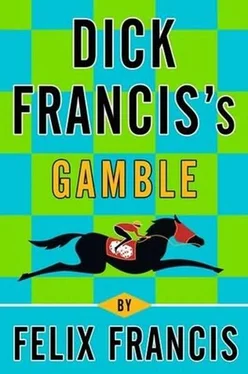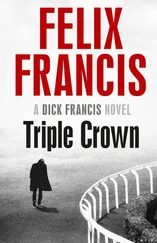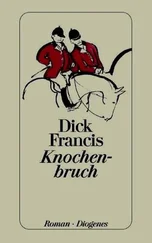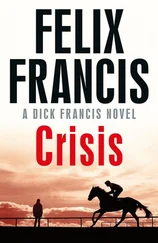“Jan, behave yourself!” I said.
“Why should I?” she asked, laughing. “I’m a rich divorcée, remember? By definition, we’re not meant to behave ourselves. Fancy a fuck?”
“Jan!” I said. “Please stop it.”
“My,” she said, abruptly standing bolt upright next to me. “I do believe you’re embarrassed. What an old-fashioned, strange boy you are.”
I was certainly old-fashioned, but was I really strange?
Maybe I was, but did that mean I wanted Jan as a lover?
No, I suddenly decided, it did not.
I wanted Claudia.
My real reason for coming to Sandown had been to see Jolyon Roberts.
According to the morning paper, one of the horses running in the third race was owned by Viscount Shenington, and I hoped it was one of those he co-owned with his brother.
I looked out for Colonel Roberts on the grandstands during the first and second races but, not surprisingly, I couldn’t see him. The fine weather had helped to bring out a good Saturday crowd at Sandown for one of the very few mixed meetings of the year, that is where both flat and jumping contests were scheduled side by side on the eight-race program. Indeed, the first event of the day was a special one-mile flat race where jockeys from both codes raced against one another in a sort of Flat V Jump championship.
I went down to the parade ring before the third race and, sure enough, Jolyon Roberts was there, standing on the grass in the center with a group of three men and two ladies, none of whom I recognized.
I maneuvered myself next to a gap in the rails, through which I assumed the Roberts party would eventually need to pass, and waited.
He saw me when he was about five strides away and, if he was shocked or surprised, he didn’t show it. However, I did detect a very slight shake of the head as he looked me square in the eye.
As a true gentleman, he stepped to the side to allow the others in his party to pass through the exit first.
“Chasers Bar after the sixth,” Jolyon Roberts said quietly but distinctly, and straight at me, as he went through the gap, not breaking his Guard’s step. I stood still and watched as he caught up to one of the ladies and took her arm. He didn’t look back at me. His words may have been softly spoken, but his message had been crystal clear: “Don’t stop me now, I’ll speak with you later in private.”
Iwas in the Chasers Bar well ahead of him. In fact, I watched the sixth race on one of the wall-mounted television sets so as to ensure I could get a table discreetly situated in the corner farthest from the door, and away from the bar.
I sat, watching the entrance, with two glasses of wine in front of me, one red and one white.
Jolyon Roberts appeared, stopped briefly to look around, then strode purposefully over and sat down opposite me.
“Sorry about this, sir,” I said. “But I had no other way of contacting you.”
“What do you have to tell me?” he said.
“Drink?” I asked, indicating the wine.
“No thank you,” he said. “I don’t. Never have.”
“Something soft?” I asked.
“No, nothing, thank you.”
“What a shame about your horse,” I said.
It had fallen at the second hurdle and broken a leg.
“These things happen,” he said. “My wife was more upset about it than me. To be honest, it solved the problem of what to do with the damn thing. It couldn’t have won the race if it’d started yesterday.” He chuckled at his own joke, a habit I found slightly irritating. “Now, tell me what you’ve found.”
“Nothing much, I’m afraid,” I said, taking a large sip of the white wine. “Except that if it is a fraud, it’s a much bigger fraud than either of us thought.”
“In what way?” he asked.
“The factory project would seem to be only the key to a much bigger enterprise,” I said. “The factory was to have cost about twenty million euros, with your family trust putting in just over six million and getting European Union funding at the rate of two euros for each one of yours.”
He nodded. “That’s right,” he said. “It was about five million pounds.”
“Yes,” I said. “But it was the funding of the factory that triggered the grant for the housing project. And that was a whopping eighty million euros, without the need for any further private finance. So it was your investment that was the key to it all.” I paused. “How did you hear about the investment opportunity in the first place?”
“I can’t really remember,” he said. “But it must have been through Gregory Black. Almost everything the trust invests in, other than the family estate, is done through Lyall and Black.”
“So was the naming of the factory Gregory Black’s idea?”
“Oh, I can’t remember,” he said. “What does it matter? The important thing is whether the factory exists. That’s what I’m most concerned about.”
“I haven’t yet managed to find that out. Is there any chance I could speak with your nephew?”
Mr. Roberts looked doubtful.
“I’d just like to ask him where he went and what he saw, or not, as the case may be.”
“He’s up at Oxford,” he said.
“Oxford University?” I asked.
Jolyon Roberts nodded. “At Keble. Reading PPE. Thinks he wants to change the world. Bit full of himself, if you ask me.”
PPE was philosophy, politics and economics. I’d thought of applying for it myself, but had opted instead for a degree course at the LSE.
PPE at Oxford was often seen as the first step on the political ladder to real power, both in British and foreign governments, and elsewhere. Alumni included such diverse members as three UK Prime Ministers, including David Cameron, the Nobel Peace Prize-winning Burmese pro-democracy campaigner Aung San Suu Kyi, the media tycoon Rupert Murdoch and the convicted IRA bomber Rose Dugdale. Even Bill Clinton had studied with the Oxford PPE class for a while when he was at the university as a Rhodes Scholar.
If Jolyon Roberts’s nephew wanted to change the world, he was starting at the right place.
“Do you have a telephone number for him?” I asked.
Jolyon Roberts seemed rather hesitant. “Look,” he said, “I’d much rather he wasn’t involved.”
“But, sir,” I said, “he is involved. You told me he was the one who started your concerns in the first place by visiting Bulgaria.”
“Yes,” he said, “but my brother, his father, has told him to forget it.”
“Does your brother have any idea you have spoken to me?”
“Good God no,” replied Mr. Roberts. “He’d be furious.”
“Sir,” I said formally. “I think it might be best if I left you to sort out any further questions you might have with Gregory himself. I have rather gone out on a limb here to find out the small amount I have, but I think it’s time to stop. The Roberts Family Trust is our client in this matter, and your brother is the senior trustee. I really should not act behind his back.” Nor behind Gregory’s, I thought.
“No,” he said. “Quite right. I can see that.” He paused. “Sorry. Should have realized. I’ll give Gregory Black a call about it on Monday.” He paused again. “Right, matter closed, as far as you’re concerned. I’ll trouble you no further.” He stood up, nodded at me briefly and walked out of the bar.
I sat there for a while longer and transferred my allegiance from white wine to red.
Had I done the right thing?
Definitely.
I was a financial adviser, not a fraud investigator.
But what if there really was a hundred-million-euro fraud going on? Had I not a responsibility to report it to someone? But to whom? Perhaps I should send an e-mail to Uri Joram at the European Commission. But did I care?
Читать дальше












